Recreation
Recreation refers to activities done for enjoyment, relaxation, and refreshment. It is important for maintaining a balanced and healthy lifestyle.
Types of Recreation
- Outdoor Recreation: Activities such as hiking, camping, fishing, and cycling that take place in natural or semi-natural settings.
- Indoor Recreation: Activities such as board games, reading, and playing musical instruments that take place indoors.
- Social Recreation: Activities such as team sports, group outings, and community events that involve interaction with others.
- Active Recreation: Physical activities such as swimming, running, and dancing that contribute to physical fitness.
- Passive Recreation: Activities such as gardening, birdwatching, and picnicking that are more relaxed and less physically demanding.
Benefits of Recreation
Engaging in recreational activities has numerous benefits, including:
- Stress relief and relaxation
- Improvement in physical health and fitness
- Enhancement of mental well-being
- Building social connections and relationships
- Development of new skills and interests
Importance of Recreation for Children
For children, participation in recreational activities is crucial for their overall development. It promotes creativity, social skills, and physical fitness.
Conclusion
Recreation plays a vital role in maintaining a healthy lifestyle and fostering personal well-being. It provides an opportunity for individuals to unwind, connect with others, and explore new interests.
.◂Science Worksheets and Study Guides Third Grade. Where plants and animals live
Study Guide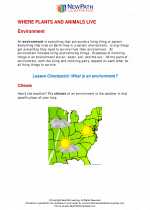 Where plants and animals live
Where plants and animals live  Worksheet/Answer key
Worksheet/Answer key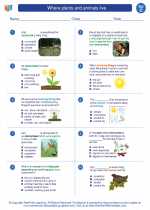 Where plants and animals live
Where plants and animals live  Worksheet/Answer key
Worksheet/Answer key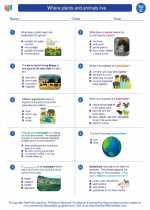 Where plants and animals live
Where plants and animals live  Worksheet/Answer key
Worksheet/Answer key Where plants and animals live
Where plants and animals live  Vocabulary/Answer key
Vocabulary/Answer key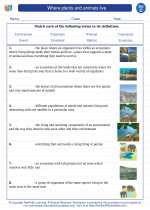 Where plants and animals live
Where plants and animals live  Vocabulary/Answer key
Vocabulary/Answer key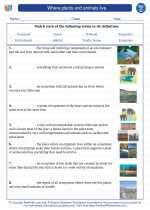 Where plants and animals live
Where plants and animals live 

 Worksheet/Answer key
Worksheet/Answer key
 Worksheet/Answer key
Worksheet/Answer key
 Worksheet/Answer key
Worksheet/Answer key
 Vocabulary/Answer key
Vocabulary/Answer key
 Vocabulary/Answer key
Vocabulary/Answer key

The resources above cover the following skills:
LIFE SCIENCE
Unity and Diversity
Construct an argument from evidence to explain the likelihood of an organism’s ability to survive when compared to the resources in a certain habitat (e.g., freshwater organisms survive well, less well, or not at all in saltwater; desert organisms survive well, less well, or not at all in woodlands).
Create models that illustrate how organisms and their habitats make up a system in which the parts depend on each other.